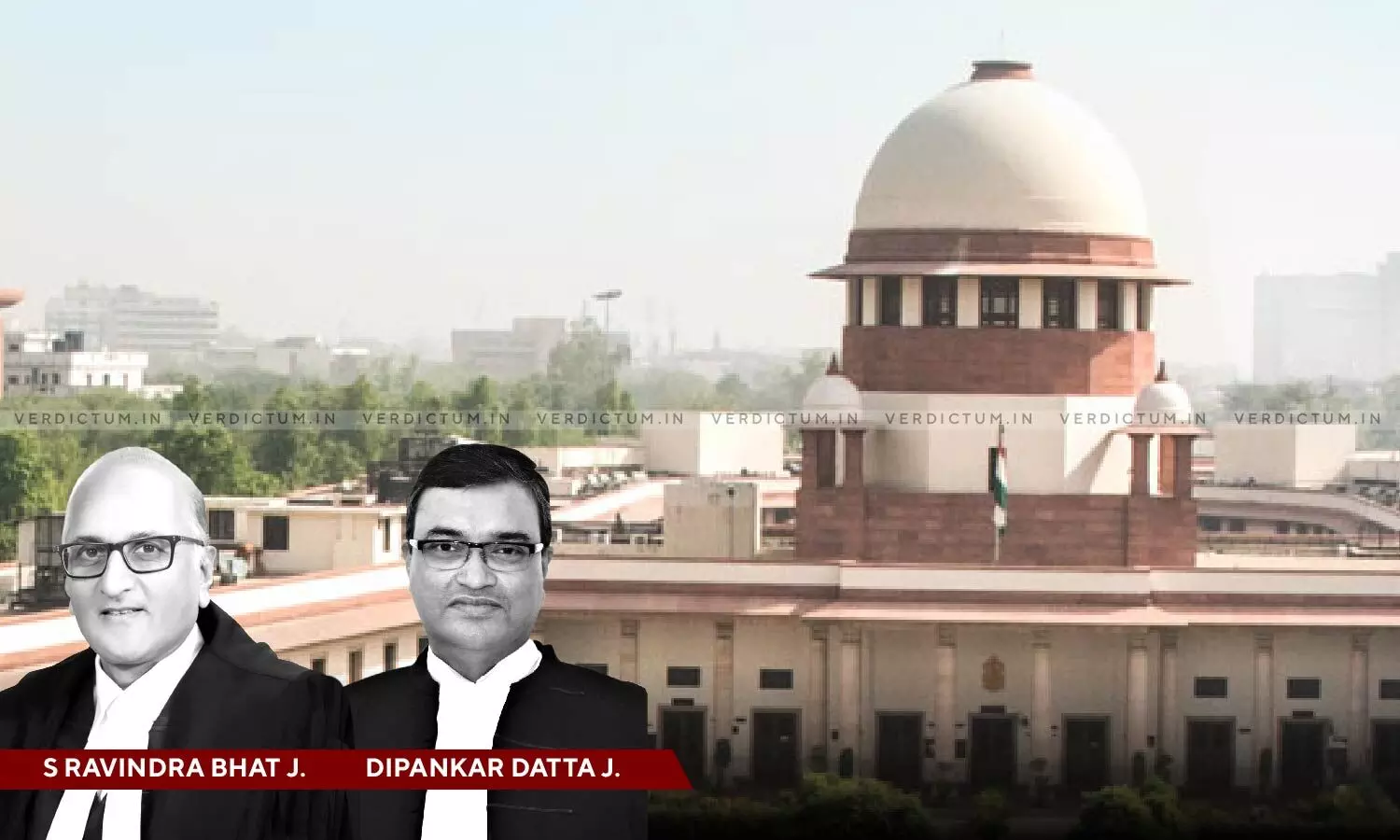
Conspiracy Case: Convictions Cannot Be Justified Solely On The Basis Of Illusory Knowledge Regarding Involvement In Crime- Apex Court
 |
|The Supreme Court in a case relating to Conspiracy has held that the convictions of persons cannot be justified solely on the basis of illusory knowledge regarding their involvement in the crime.
The Court was dealing with a batch of two appeals challenging the judgment of the Madhya Pradesh High Court whereby the appellants were convicted under Sections 411 and 120-B of the of the Indian Penal Code (IPC), respectively.
The two-Judge Bench comprising Justice S. Ravindra Bhat and Justice Dipankar Datta noted, “What could have more aptly summarise the entire prosecution case, especially the flawed investigation in the matter at hand, than the words of Daniel J. Boorstin, the American historian: “The greatest obstacle to true discovery is not ignorance, but rather the illusion of knowledge”. … Against this background, to say that the convictions of Manoj and Kallu can still sustain, appears far-fetched; their convictions cannot be justified solely on the basis of illusory knowledge regarding their involvement in the crime.”
The Bench said that one person cannot alone conspire as per Section 120-B of the IPC.
Advocate Ritika Sethi appeared on behalf of the appellant while Advocate Sunny Choudhary appeared on behalf of the respondent.
In this case, in all, five accused persons were convicted and sentenced for different offences punishable under the IPC vide the common judgment of the Additional Sessions Judge. The said judgment was confirmed by the High Court and hence, all the accused persons preferred Special Leave Petitions (SLPs”) before the Apex Court challenging the same. The SLPs of the three accused, were dismissed and the judgment of the High Court affirming their conviction and sentence was left undisturbed. However, notice was issued on the SLPs preferred by the remaining two accused.
The case of the prosecution, in a nutshell, was that a complaint was registered to the effect that in 2010 while the complainant was in her house, four persons rang the doorbell. When her servant answered the door, all four persons armed with a pistol forcefully entered the house and tied up the hands and legs of the complainant and her servant. They threatened to kill them, and proceeded to rob the complainant of silver and gold jewellery, cash, and other valuables by taking the keys to the locker. Based on the complaint, an F.I.R. was registered against four unknown persons under Section 394, IPC and all of them were subsequently arrested.
The High Court in view of the above facts of the case observed, “There can be no two opinions that the quality of evidence led by the prosecution in the present case to nail Manoj and Kallu was wholly untrustworthy for convicting them and the Trial Court as well as the High Court erred in not acquitting them. … A doubt looms: can disclosure statements per se, unaccompanied by any supporting evidence, be deemed adequate to secure a conviction? We find it implausible.”
The Court said that although disclosure statements hold significance as a contributing factor in unriddling a case, they are not so strong a piece of evidence sufficient on its own and without anything more to bring home the charges beyond reasonable doubt.
“It is clear as crystal that the sole connecting evidence against Manoj and Kallu was the recovery based on their disclosure statements, along with those of the other co-accused but this evidence, in our opinion, is not sufficient to qualify as "fact … discovered" within the meaning of Section 27. Having regard to such nature of evidence, we view the same as wholly untrustworthy”, held the Court.
The Court further noted that the conviction of the accused, solely relying on the disclosure statements made by himself and the other co-accused, does not suffice to warrant a presumption under Section 411 of IPC.
“It would not be unreasonable to presume that a goldsmith, who has to deal in ornaments and jewelleries on a day-to-day basis, would obviously be in possession of a significant quantity of ornaments at his shop. Given the circumstances, such a presumption drawn under Section 114(a) stands vitiated. … At this juncture, even if we assume the veracity of the claim that the items sold to Manoj were indeed stolen articles, it would not be sufficient to attract Section 411, IPC; what was further necessary to be proved is continued retention of such articles with a dishonest intent and knowledge or belief that the items were stolen”, added the Court.
The Court said that no evidence worthy of consideration was adduced by the prosecution to prove that the accused had retained the articles either with dishonest intent and with knowledge or belief of the same being stolen property.
“… the conviction of Kallu under Section 120-B, IPC stands completely vitiated because of the simple reason that one cannot alone conspire. There is no evidence to even remotely suggest that there existed any agreement between Kallu and the co-accused while none of the others, except Kallu, has been convicted for criminal conspiracy”, also held the Court.
Accordingly, the Apex Court allowed the appeals, acquitted the appellants, and set aside the judgment of the High Court.
Cause Title- Manoj Kumar Soni v. The State of Madhya Pradesh (Neutral Citation: 2023 INSC 705)